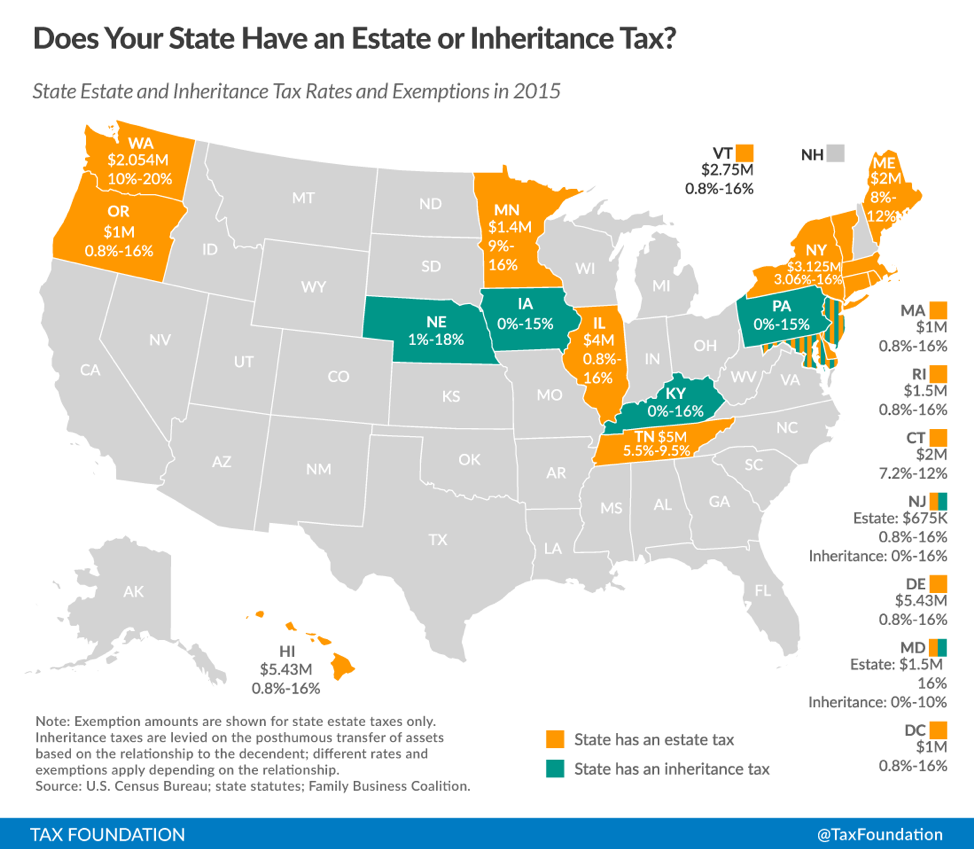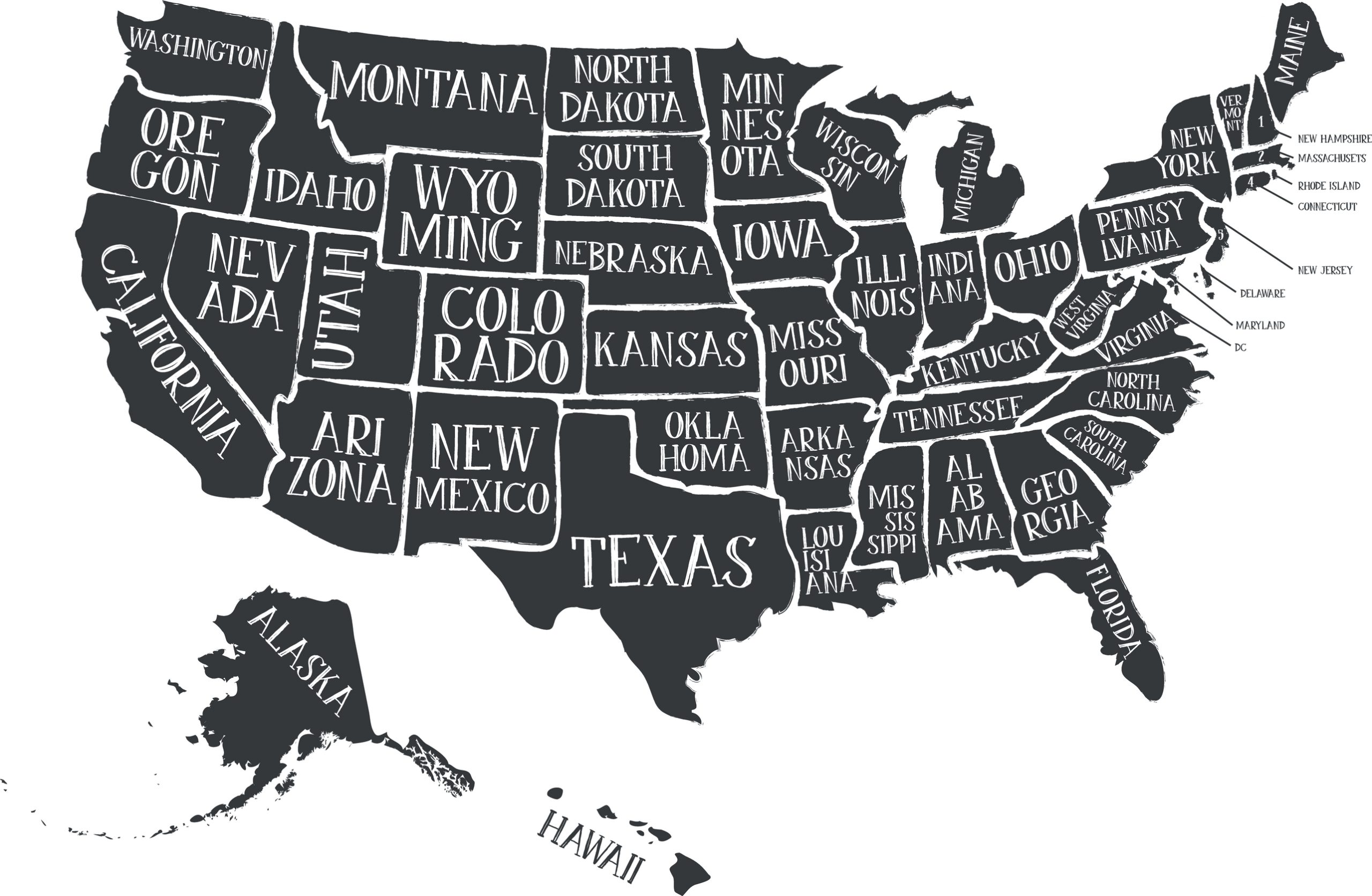As a financial planner I am fortunate to watch my clients live, work, retire (and sometimes) move all over this great country of ours. All this moving around has created a very spread out client base with very different state estate tax rules and regulations. Since a well thought out, written and funded estate plan is central to any client’s long-term financial well being, it is important that clients who recently relocated update their estate planning documents.
Since the Federal estate tax exemption is now $5.45 million dollars per person, this means a couple can shelter up to $10.9 million dollars free from Federal estate taxes in 2016. While this may be subject to change at a later point in time, we are finding that the state estate tax rules, while lesser known, are at times creating more of a planning issue for our clients and their estate planning attorney.
The chart below details which states have an estate tax. Washington has the highest rate at 20%. New Jersey has the lowest estate tax threshold in the country starting at $675k and 16%. Virginia has no estate tax. Maryland is attempting to align with Federal estate tax rules by 2019. The District of Columbia remains at $1mm and 16%.
Does your state have an estate tax? If the answer is yes and you have questions, make sure to give your planner a call. If you live in a state that has an estate tax, you need a cohesive plan coordinated by your estate planning attorney and financial planner to address this important issue. Otherwise, your heirs may be in for quite a shock.




Social Media